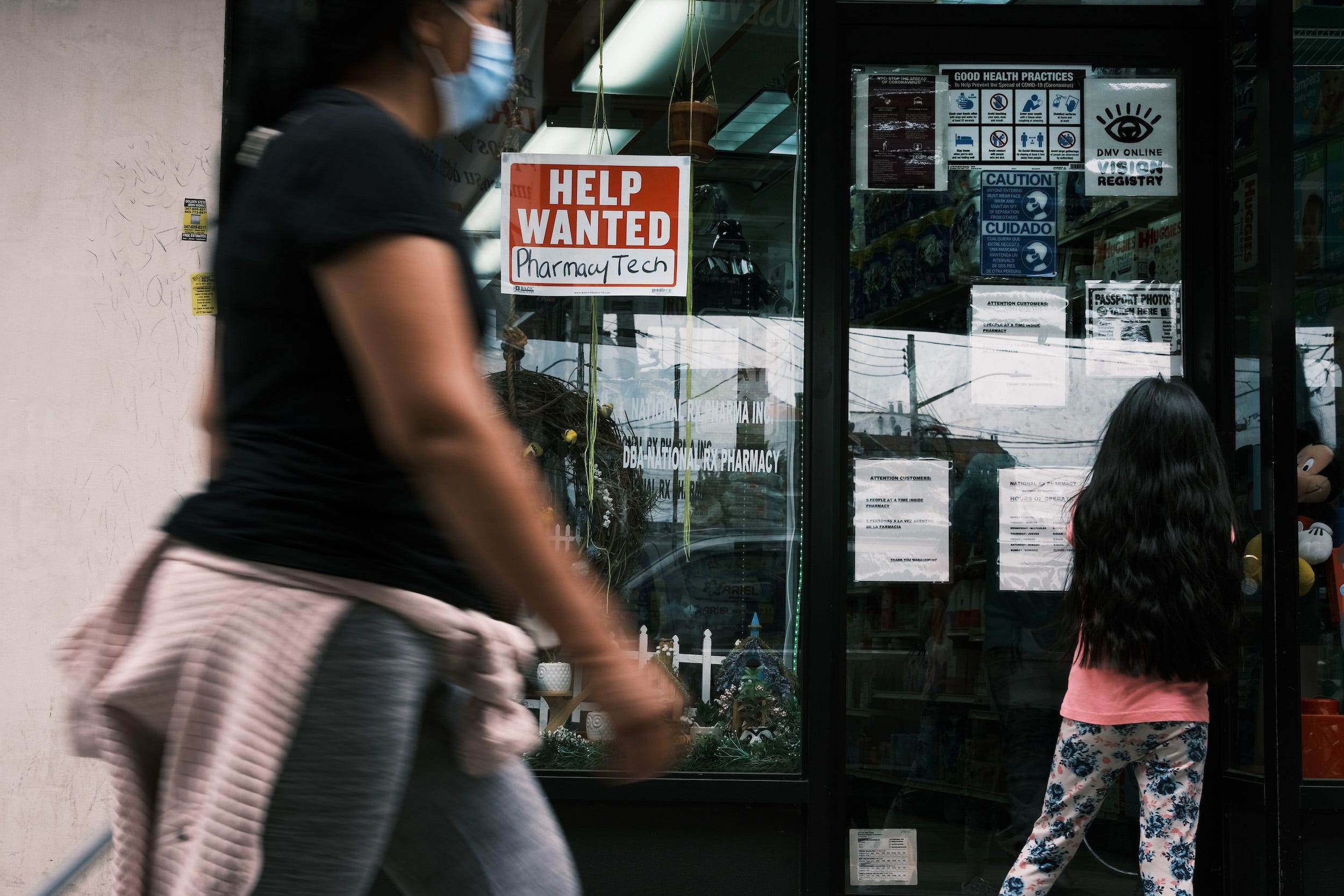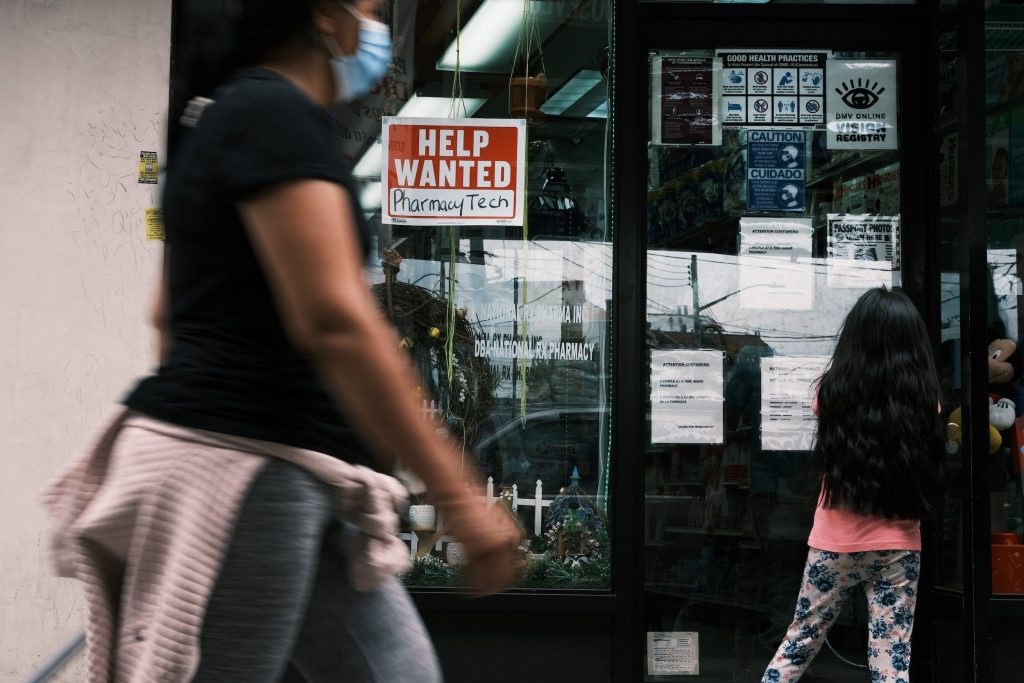
Spencer Platt/Getty Images
- Workers have increasingly been "ghosting" employers during the pandemic, according to the Fed.
- One reason, they tell Insider, is because employers have been guilty of doing it for years.
- While ghosting mostly happens in the hiring process, some employees also have had it happen to them.
- See more stories on Insider's business page.
For Scott Margot, the promised phone call never came.
For Paul Scherwin, the hiring manager never showed up.
For Matt Murphy, the hours just evaporated from his schedule.
Each was looking to work during the pandemic in industries that have complained about a shortage of workers and an increase in the trend of "ghosting coasting," where new hires simply vanish without notice. Now, these workers say, businesses are getting a taste of their own medicine.
By his telling, Margot did everything right: he schmoozed with a sales and marketing director at a hotel-industry networking event, landed a follow-up interview, and received an invitation to tour the property. He had 20 years' experience in the industry and was told a job was opening soon that he'd be perfect for.
"I thought everything was fine," he told Insider.
At the sales director's instruction, he waited for the job to be listed online and submitted his application as soon as it was posted. A week later he checked the website to find that his application was rejected, and subsequent attempts to understand why were met with voicemail boxes and no reply.
"I'm still looking for a job," he said. "It's scary, this is my career not a job just to get by."
After Scherwin was laid off from his management job last year due to COVID, he told Insider he began delivering packages for FedEx all while applying for five to 10 jobs each month.
"I've been looking for a year now," he said. "I have applied for way too many management jobs for me to count. I still haven't found anything."
In November, he completed two interviews with a company before the listing was pulled without explanation. For another, he called in sick to work in order to make it to an interview, but said the hiring manager never showed up. And two weeks ago, he says he was told that he would hear back within a week about the next interview.
"I'm tired of hearing about the poor companies being ghosted," Scherwin said. "That's far from my real-world experience. It's me, the candidate, that is who's been ghosted."
There are myriad reasons that ghosting is on the rise in the hiring process, not least of which is the expanded use of algorithmically powered screening decisions, as recently documented by Harvard Business School.
An overwhelming majority of employers told the researchers that strict screening criteria in applicant-tracking systems vets out otherwise qualified applicants for high- and middle-skills jobs. And that's before all manner of human factors enter into the hiring process.
But it's not only in the hiring process where workers feel - and are - ghosted. Several workers in industries that have irregular schedules told Insider that it is common for someone to be gradually taken off the calendar without explanation.
Restaurant worker Matt Murphy told Insider that happened to him when he caught COVID-19 and needed several days to recover.
"When I told [my managers] I was ready to go back to work, I didn't get a response," he said.
Like many jobs in the US, restaurant work generally falls under at-will employment, which means that employers can terminate an employee for any reason and at any time.
"A lot of times employees just get their hours cut back, and then eventually just get kind of removed from the schedules," Murphy said.
The phenomenon of workers ghosting on jobs is very real and causing serious disruption in the labor market, but Margot, Scherwin, Murphy, and many more like them view it as a turning of the tables on HR practices that businesses have been guilty of for years.
If you are a worker who has ghosted an employer or an employer who has been ghosted, please get in touch with Dominick Reuter via email. Responses to this story will be kept confidential.

